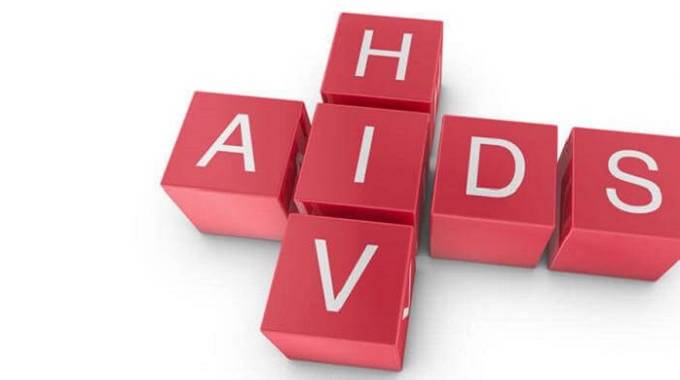Zimbabwe HIV, TB patients in Bots, SA raise lockdown alarm

Mthabisi Tshuma, Features Correspondent
THE Covid-19-induced lockdowns in South Africa, Botswana and Zimbabwe have had a great impact on HIV-positive Zimbabweans and TB patients based in the neighbouring countries.
A significant number of Zimbabwean nationals in Botswana and South Africa had not stocked up on medication when the lockdowns were effected in the neighbouring countries.
Those who were set to collect their medication during the period the lockdowns came to effect at a time when they should have restocked are now in panic mode.
A number of Zimbabweans based in these Sadc countries would get relatives to collect their medication in at health facilities here and get the drugs couried to Botswana or South Africa through omalayitsha, the informal cross border transporters.
However, the travel restrictions put in place to help slow the spread of Covid-19 have grounded omalayitsha who would make a killing from transporting the pills, among other cargo.
A villager from Bulilima District *Mrs Sjabuliso Nyoni (not her real name) said she fears for the life of her husband who is based in South Africa as he cannot access his medication.
She said she has tried in vain to find means of transporting the medication considering that the road network in rural areas is bad.
Her not being able to access the nearest town, Plumtree, due to movement restrictions is driving her into depression.
She is uncertain of her family’s future as they are all supported by her husband.
“I understand the need for travel restrictions to slow the spread of the pandemic but we’re anxious of how our breadwinner is coping in this crisis.
“We’re not able to send his medication because of the lockdown and what hurts more is that the medication has run out.
“We were supposed to send his medication mid-April. If the start of the lockdown had been announced in good time, we would have made efforts for the medication to reach him before the lockdown began,” she said.
Failure to take anti-retroviral medication can be fatal for people infected with HIV. Some who cannot access their medication due to the lockdowns are understood to be considering joining returnees from South Africa and Botswana.
Although returnees and deportees who come into the country are subject to a mandatory 21-day quarantine at the isolation centres of entry, the patients believe it is a better option compared to defaulting on their medication.
A Bulawayo resident who chose to only identify herself as MaNkomo said she had lost hope as some of her HIV-positive relatives are not being assisted at health facilities in Botswana.
She said in addition to being crippled financially due to the lockdown, she feared her relatives could be buried abroad as they can’t afford to ferry them to Zimbabwe, if they were to die.
“We have relatives who have tried to source medication in Botswana where they stay but they’re saying they are turned away if they are even able to reach the hospitals. The travel restrictions are all the more limiting for foreigners.
“Also considering that they were doing menial jobs in that country and could not afford a funeral policy. Looking at the reality of the state of the world, we fear they might be buried at places we don’t know, if nothing is done to help them,” said MaNkomo.
Zimbabwe had 1,3 million people were living with HIV in 2018. About 88 percent of them are on treatment. However, the proportion of them who are resident in Botswana and South Africa and were getting their treatment through informal transporters is unknown.
UNAIDS, the United Nations arm charged with addressing the HIV and Aids pandemic recently said it is monitoring the impact of Covid-19 and working with networks of people living with HIV, governments and development partners to ensure that the concerns of people living with HIV are heard and reflected in national Covid-19 responses. This includes identifying constraints on health services, encouraging longer, multimonth prescriptions of antiretroviral medicine and helping communities to provide solutions.
The Zimbabwe National Network of People Living with HIV said Covid-19 is also a major health and socio-economic shock to people living with HIV. Compared with the general population, the network said, people with compromised immunity are at higher risk of contracting the new coronavirus and developing more serious Covid-19 illness; and this includes people living with HIV. It added that the HIV population in the country is aging, and nearly half are over 50, the age group that has also been found to be more prone to serious illnesses due to Covid-19.
National Aids Council (NAC) provincial Aids co-ordinator for Bulawayo, Mrs Sinatra Nyathi acknowledged the fear of diasporans on medication defaulting.
She said there is need for Sadc health ministries to work closely together to address the issue.
“We realise the challenge thus we advise the patients to go to health facilities in the country where they are locked down and present their issues.
“We hope that countries will understand that we’re not in a normal environment due to Covid-19. If that doesn’t work then there’s need for health ministries in the region to work out a plan on ensuring these patient’s needs are catered for,” said Mrs Nyathi. — @mthabisi_mthire.








Comments